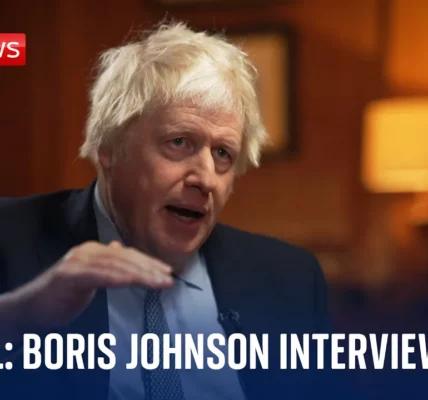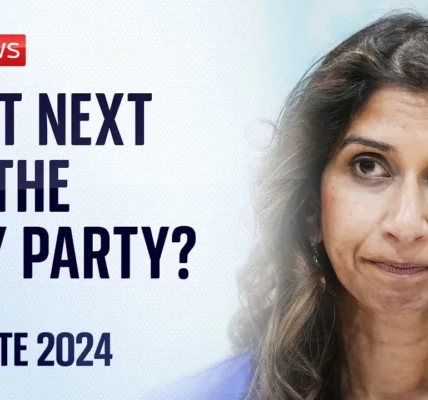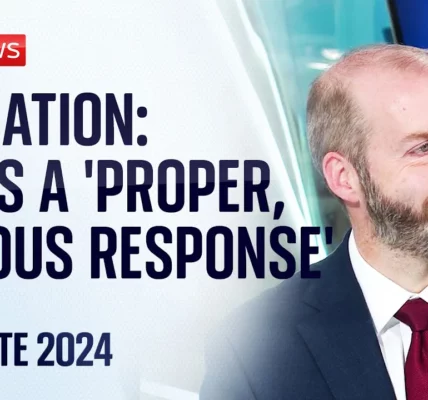Revelations Surrounding Omar al-Baumi and the 9/11 Attacks

In the wake of the tragic 9/11 terror attacks, a Saudi Arabian student named Omar al-Baumi became a point of interest for authorities. This article delves into the newly uncovered evidence, the implications for Saudi Arabia’s involvement, and the ongoing efforts for justice and accountability.
Introduction
The events of September 11, 2001, forever changed the global landscape of security and international relations. Among the myriad of investigations that followed, the case of Omar al-Baumi, a Saudi Arabian student arrested shortly after the attacks, has resurfaced with new evidence that raises serious questions about his connections to the hijackers and the Saudi government. This article explores the details surrounding al-Baumi’s background, the evidence presented in a recent civil court case, and the implications for understanding the broader narrative of the 9/11 attacks.
The Arrest of Omar al-Baumi
Days following the 9/11 attacks, British authorities arrested Omar al-Baumi in Birmingham, UK. Initially detained as a suspect, he was released without charge, only to be later identified by the FBI as a potential Saudi intelligence agent. This identification has prompted further investigation into his activities and relationships during his time in the United States.
Initial Detention
- Arrest occurred just days after 9/11.
- Al-Baumi was a Saudi student studying in the UK.
- Released without charges but remained under scrutiny.
FBI Identification
The FBI’s later identification of al-Baumi as a Saudi intelligence agent raised alarms. Investigators have sought to unravel the connections between al-Baumi, the hijackers, and any potential support from Saudi officials.
Evidence Emerging from Civil Court Cases
Recent developments in civil court cases in the United States have revealed previously secret evidence that implicates al-Baumi further. The evidence includes a video filmed by al-Baumi in Washington D.C., which showcases his commentary on significant government buildings.
The Washington D.C. Video
In this video, al-Baumi made remarks that some interpret as incriminating, including references to “the demons inside the Capitol” and “the plan.” These comments, alongside footage of him casing government buildings, have raised suspicions about his intentions.
Al-Baumi’s Defense
Despite the evidence, al-Baumi maintains that he was merely a tourist and not an intelligence agent. He has admitted to befriending two of the future hijackers during his time in the US, claiming it was simply to assist fellow Saudis in settling into a foreign environment.
Connections to the 9/11 Hijackers
Two of the hijackers who crashed into the Pentagon were reportedly befriended by al-Baumi. This connection has fueled speculation about the nature of his relationships and whether they were coincidental or part of a larger network supporting the attacks.
Impact on the Pentagon Attack
On September 11, 2001, one of the hijacked planes was crashed into the Pentagon, resulting in the tragic loss of 189 lives. Understanding the connections between al-Baumi and the hijackers is vital for comprehending the broader implications of these relationships.
Legal Ramifications
Campaigners seeking justice for the victims of 9/11 have pointed to this evidence as a means to hold the Saudi government accountable. They argue that al-Baumi’s ties to the hijackers indicate a level of support from Saudi officials.
Emergence of New Evidence and Its Implications
The recent emergence of key pieces of evidence, including scribbled calculations found in al-Baumi’s possession, has stirred further debate. Allegedly, he claimed these were his son’s homework assignments, but they raise important questions about their relevance to the 9/11 planning.
What the Evidence Suggests
The evidence implies that there may have been individuals within the Saudi regime who aided the hijackers. This assertion is critical in legal battles aimed at securing compensation for 9/11 victims.
Saudi Government Denials
Historically, the Saudi government has denied any involvement in the support of the 9/11 terrorists. However, the new evidence challenges this narrative and adds pressure for accountability.
Conclusion
The case of Omar al-Baumi continues to evolve, with new evidence emerging that has potential implications for understanding the events leading up to the 9/11 attacks. As investigations proceed, the pursuit of justice for the victims remains at the forefront, with calls for accountability directed toward the Saudi government. It is crucial for the public to stay informed about these developments, which could reshape the narrative of one of the most significant events in recent history. For more information on related topics, check out our articles on terrorism investigations and Saudi Arabia’s role in 9/11.
“`




